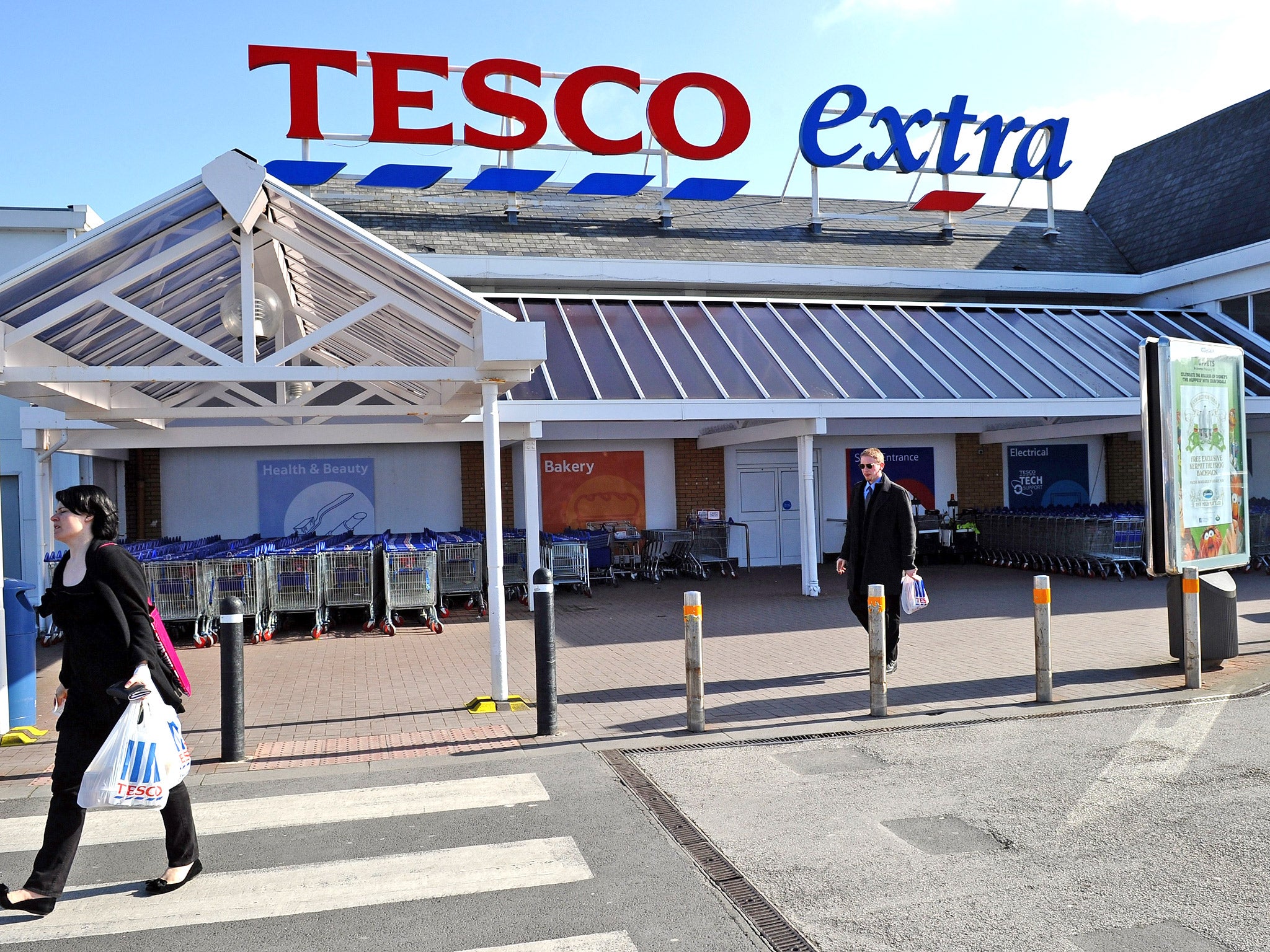Why big is no longer beautiful for Tesco
The supermarket chain's relentless hunger for giant new stores is over, it has signalled. So what's the strategy?

All through the 1990s and most of the last decade, Tesco was on a remorseless mission to carpet over the UK's high streets and retail parks with stores decked out in its red, blue and white colours.
The supermarket giant's land bank of undeveloped sites had become so vast that it formed a key part of the Competition Commission's inquiry into the grocery sector that completed in April 2008.
Since then, however, the world of retailing has changed almost beyond recognition as consumers increasingly buy food, TVs and clothing online. As a result, Tesco surprised the City by saying it would now no longer develop more than 100 sites in the UK and reaffirmed that the "space race" of opening big supermarkets and hypermarkets was over.
Philip Clarke, chief executive since March 2011, signalled how he is equipping Tesco for this new world order as the grocer posted its first fall in underlying profits for nearly two decades and called time on its US venture after it racked up losses of about £850m over the last five years.
While its retreat from America, following its exit last year from Japan, will allow Mr Clarke to focus on its core grocery operation in 12 countries, the fact remains that Tesco has fires burning across its empire.
For instance, underlying sales fell in all its overseas markets in the fourth quarter, apart from in Malaysia and Thailand. While the grocer hailed its "strongest" like-for-like sales in the UK for three years in its final quarter, they only rose by 0.5 per cent. Indeed, once the positive impact of Clubcard vouchers are stripped out, its sales fell by 0.4 per cent.
Philip Dorgan, an analyst at Panmure Gordon, said: "Management cannot claim concrete evidence of a UK recovery with these numbers."
Demand for its frozen meat also took a short-term hit after it became embroiled in the horsemeat scandal, although it quickly withdrew the four affected products.
From a financial perspective, it was a year to forget for Tesco, as its statutory pre-tax profits tumbled by 51.5 per cent to £1.96bn. This followed a series of hefty writedowns, including £1.2bn on its US operation and £804m on its UK property portfolio.
However, while Mr Clarke has a trolley-full of problems to address, no one could accuse him of being indecisive or not deploying left-field thinking. Last April, he sanctioned a £1bn investment in its UK business to spruce up its stores and food, as well as slashing the amount of big out-of-town stores it opens. Reflecting the changed layouts, more wooden features and greater use of green in its 300 refurbished stores, Mr Clarke said its stores are "warmer, easier and more welcoming places to shop". He added: "I've been working at Tesco for nearly 40 years and I can tell you this – it already looks, feels and acts like a different and better business."
More radically, Tesco has recently surprised the City by investing in, or acquiring, the Euphorium bakery, Harris & Hoole coffee shop and Giraffe restaurant chains. These brands will continue to roll out standalone shops but a key driver behind Tesco's investments is to put them into its big stores to give customers an additional reason for visiting the grocer.
Peter Saville, a partner at advisory firm Zolfo Cooper, said: "By installing these outlets in its larger stores, Tesco will make more effective use of its vast floor space and become a more attractive destination for consumers." Last month, Tesco acquired Giraffe for £48m. It plans to introduce the first restaurant inside its Extra hypermarket in Watford this summer.
The other significant step change in Tesco's operation recently has been the expansion of its internet grocery operation globally. In the UK alone, Tesco grew its online grocery business by 12.8 per cent to £2.3bn last year but Tesco also launched food on the web in six new countries, including in Slovakia and Poland, taking its revenues beyond £3bn.
Despite the huge efforts Mr Clarke is making to turn Tesco into a supermarket fit for the 21st century, retail historians will remember 17 April as the day that another UK retailer admitted it had failed in the US. Its finance director Laurie McIlwee said the process to sell Fresh & Easy was "going well", but he added it would not be concluded for at least three months.
Bryan Roberts, the insights director at Kantar Retail, said the German discounter Aldi, which also owns the US chain Trader Joe's, among others, may be interested in Fresh & Easy's Californian distribution centre and some stores but "probably not a big chunk" of its operation.
Stripping out the US and all the other exceptional items, Tesco still made underlying profits of £3.55bn in 2012-13, although even this was down by 14.5 per cent. While the grocer cut back on opening big hypermarkets and superstores, it still opened 120 of its Tesco Express and One Stop convenience stores in the UK last year.
Acknowledging how the internet has changed the grocery world, Mr Clarke said: "We are going to build some [big stores] but we are going to build less, and some of the investments we made in previous years we don't think we should be building because quite frankly the world has moved on. It's moved to a multi-channel world."
Join our commenting forum
Join thought-provoking conversations, follow other Independent readers and see their replies
Comments